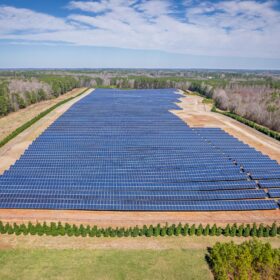LIPA proposes value of solar for commercial installations
Amid squeals of pain from the island’s commercial solar installers, the Long Island Power Authority has proposed moving to a value of solar tariff and away from traditional net metering.
Oregon’s U.S. Senate delegation split over Section 201 trade proposals
While Senator Wyden has strongly supported aggressive trade action, Merkley is calling for subsidies and not tariffs
Pennsylvania offers $30 million to create solar jobs
Before the ink was even dry on Governor Tom Wolf’s signature on Act 40 – designed to stabilize the state’s solar market – the governor has made money available for companies that deploy and create solar jobs.
Fighting for U.S. manufacturing: An interview with SolarWorld Americas CEO Jürgen Stein
In this exclusive interview with pv magazine, SolarWorld Americas CEO Jürgen Stein gives his perspective on the Section 201 trade case, including responding to criticism of potential effects on the U.S. solar market.
HECO, University of Hawaii strike a deal for power from off-site renewables
Taking a page from the corporate procurement playbook, this “green tariff” could include solar plus storage and may be available to other institutions in the future.
Utah approves $200 fee for 15 minute-interval meters
New solar customers in the Beehive State not only lost full retail-rate net metering last week, but they will be paying Rocky Mountain Power $200 for the meter that will govern the program’s successor.
Maine proposes doubled interconnection fees for solar customers
The Pine Tree State’s Public Service Utilities Commission will hold a public hearing on December 12 to discuss the proposed changes to the fee schedule for Central Maine Power.
California low-income multifamily solar program moves forward
After two years of delays, the process to implement the $1 billion SOMAH program is moving forward.
Could Michigan be the next PURPA boom state?
The Wolverine State’s Public Service Commission has spent 2017 quietly setting up a framework under the 1978 law that could position the state’s solar industry for significant growth.
On to round 5: Solar trade report filing sparks new round of lobbying
The U.S. International Trade Commission delivered their formal recommendations to President Trump on the solar tariff case last week. Let the next round of intense lobbying of the U.S. trade representative begin.















